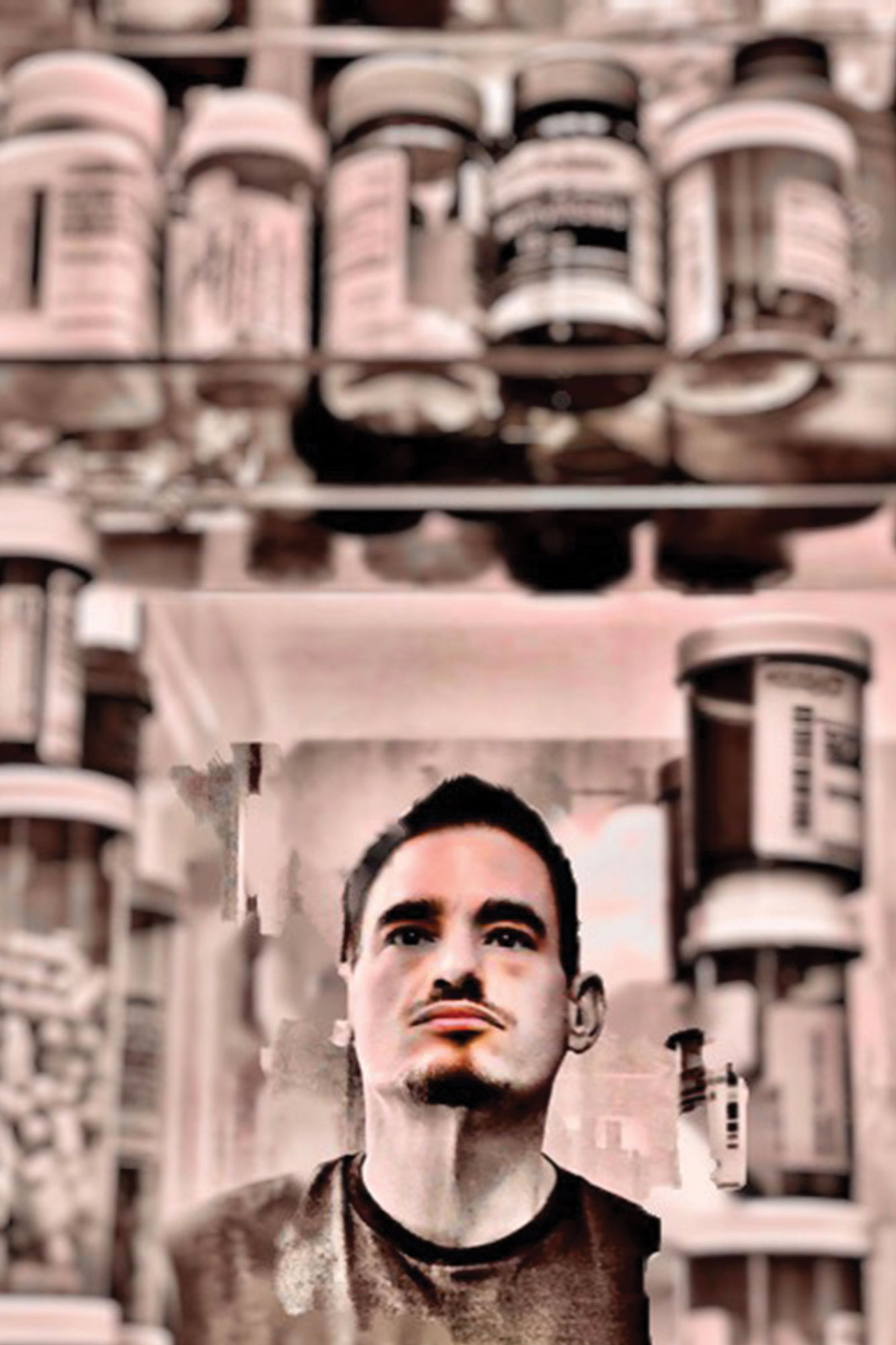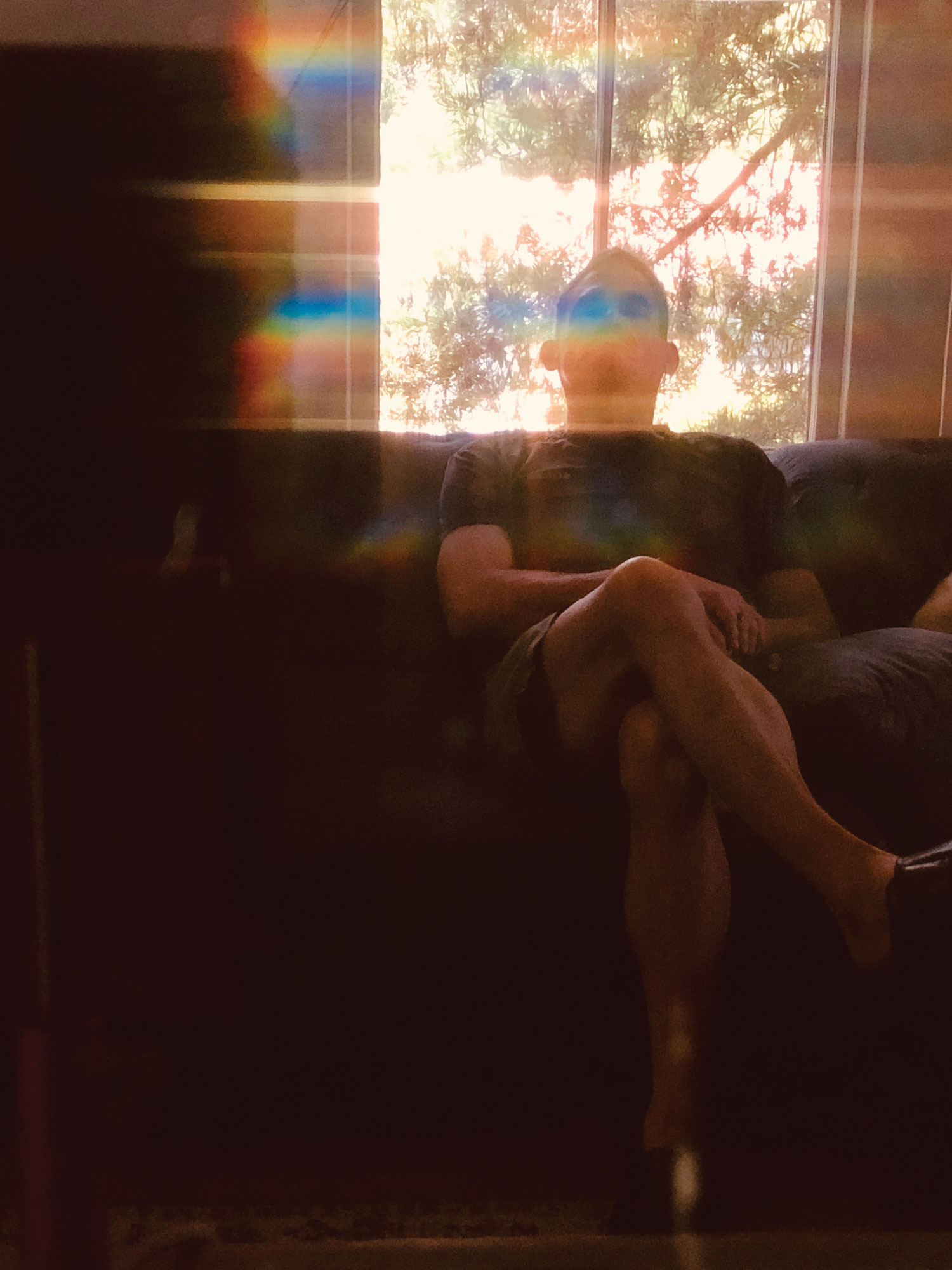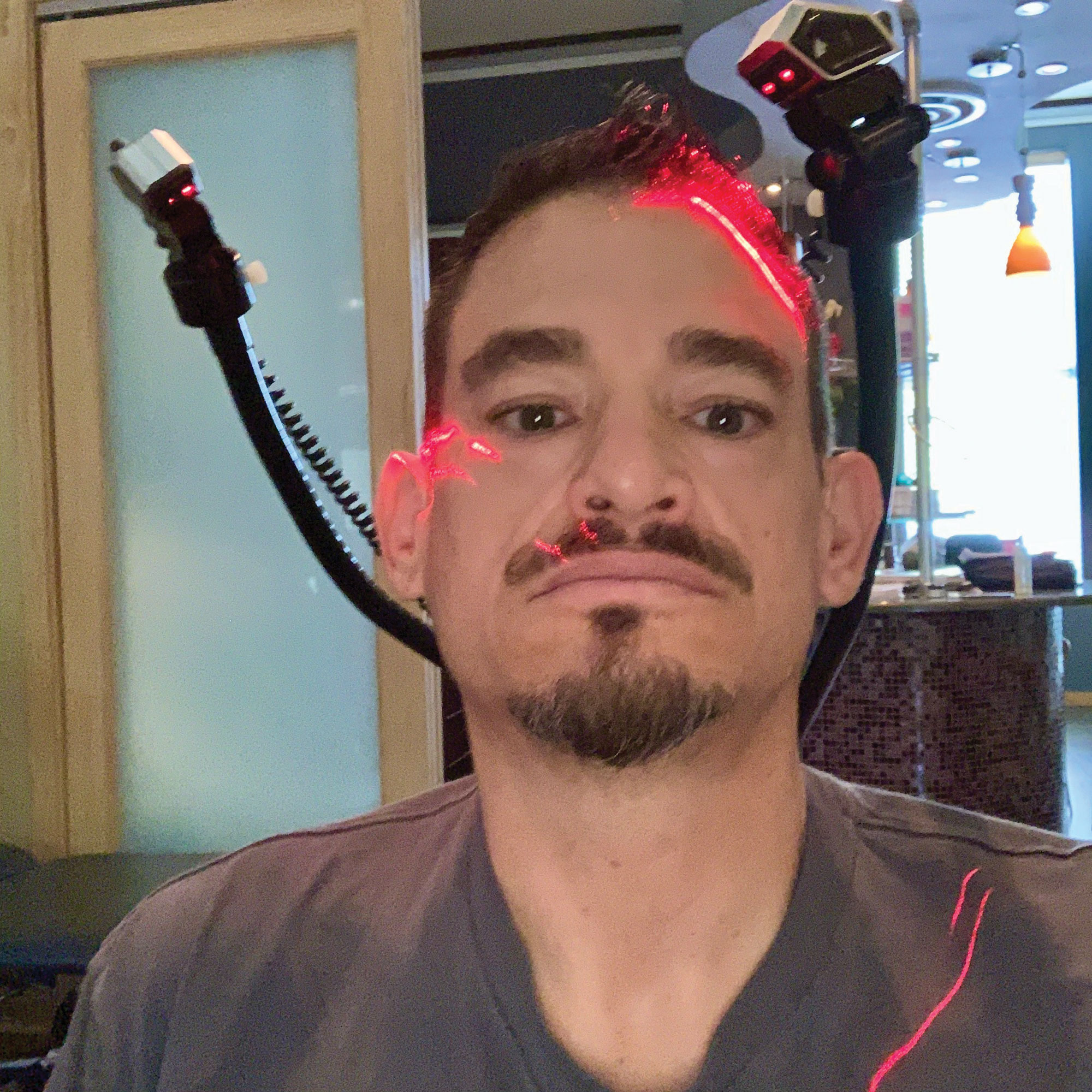
Me, Myself and Eye
ONLINE PRESENTATION
Me, Myself and Eye Home // Leslie Elsasser - Introduction // Selina Roman - Mind Currents // Michael Ball // TC Bryant // Larry Busby // David Canaday // Michael Congdon // Brandie Dziegiel // Loretta Fields // Jeaniel Image // Douglas Eric Jordan // Valerie Larson // John Leduc // Jason Lind // Mikko Maki // Alex Martinez // Matias // Noemys McConnell // Megan O’Connell // Robert Ortega // Adaina Plaza // Pat Randall // Heather Rivera // RaeAnne Swanson // Michael Webb

Mikko Maki, Daily Reminder, 2020
MIKKO MAKI - US MARINES
Daily Reminder
Written as told to Bethany Maki
I wanted to be a Marine since I was a child, listening to local veterans who volunteered at my Boy Scout camp talk about their adventures overseas and the meaning of serving others. I wanted to be an infantry man like them, a “ground pounder.” I enlisted on my 17th birthday. Because I wanted to go in as soon as possible, I signed up as an open contract, meaning no MOS (military operational specialty) was assigned and I’d be allocated to whatever the need of the Marines was when I went in.
Apparently, the Marines needed a photographer. With a few weeks left in boot camp, our drill instructors sat us down to talk about life in the Marines. Here I learned I would be going to an Air Force Base in Denver, Colorado for training as combat photographer. It was at this base that I fell in love with photography. I learned all about cameras and developing film, and trained on a myriad of military technology to fulfill the job of a combat photographer. I was enjoying the school but I still wanted to be an infantry man. A few weeks before graduation, we were going through a typical military inspection. The inspecting officer, an Air Force general, asked me how I felt about being a combat photographer. I told him that I joined the Marines to be in the infantry, period. The Marine Detachment commander who was in this same inspection heard this and ordered me to report to his office at 0800.
The next morning, the commander asked if I was serious about being in the infantry. I said, “Yes Sir!” He handed me a set of orders and told me that I would be leaving for Camp Pendleton, California the following day, and told me to enjoy my life in the infantry. This closed my chapter as a Marine combat photographer but ignited my lifelong passion for making images. Throughout my 15-year career in the Marines and 20-year career in technology after I “retired,” I always found time with my cameras.
That changed on April 4, 2015. This was the day I was admitted to the hospital with strange neurological symptoms that made the doctors suspect I had a stroke. Eleven days later, they figured out what was wrong. I had contracted HIV and developed AIDS—cerebral toxoplasmosis, a common parasitic infection among people with severely weakened immune systems, was at the root of my neurological symptoms. A few days after that, the doctors also discovered I was losing my eyesight to retinal cytomegalovirus, another opportunistic infection. Five years later, I’ve lost most of my executive function, short term memory and have both sight and hearing loss because of the 17 areas of scar tissue left in my brain from the toxoplasmosis. But I’m alive.
I built a barrier around myself after my diagnosis and cognitive loss. I don’t fit with my old work friends from my days in tech, or at church, or with volunteer groups where everything moves at what I refer to as “normal human speed.” And, because my brain works so slowly now, I can’t manipulate the settings on my professional cameras. I sold them, and thought I was closing the chapter on my love of making images.
But the veteran community has always felt like a safe place to me—we accept each other broken. My wife found the information about Breaking Barriers through the Exalted Warrior Foundation. The class, even in the virtual setting forced by the COVID-19 pandemic, lived up to its name. It helped me break the barrier I built around myself, find a new way to love photography using an iPhone, and tell a story with this picture, Daily Reminder, that I can’t verbalize. I am forever grateful to Breaking Barriers and hope that this program and the healing it enables grows to serve all of this country’s veterans.
MIKKO MAKI
US MARINES

Mikko Maki, TV, 2020

Mikko Maki, Neurology, 2020
For more information:
Email Leslie Elsasser at lelsasse@usf.edu
or Ashley Jablonski at danyele@usf.edu
Breaking Barriers 2020 is supported by the James A. Haley Veterans’ Hospital, Love IV Lawrence, Hillsborough Arts Council, and the Florida Department of State.

Subscribe
Sign up for USF Institute for Research in Art email updates!
Follow us
Visitor Information
Graphicstudio Hours:
M–F 10am–5pm
USFCAM Hours:
Mon. to Fri. 10am–5pm
Thurs. 10am–8pm
Sat. 1–4pm
CAM is closed Sundays, all University and State of Florida holidays, and between exhibitions.
Tours:
Groups and organizations interested in tours of the exhibition should contact CAM to schedule at least two weeks in advance at (813) 974-4133.
Accessibility:
The University of South Florida Contemporary Art Museum (USFCAM) is fully accessible to visitors with disabilities. There are disabled parking spaces outsde of the museum, an accessible entrance, good lighting and accessible restrooms.
The museum follows the USF guidelines regarding service animals.
USFCAM faculty and staff are pleased to work with organizations that provide cultural opportunities for disabled clients to tour the Museum. Please call (813) 974-4133 two weeks in advance to request specific tour information. For more accessibility information please call (813) 974-4133.
Internships
Interested in an internship at CAM or Graphicstudio? Visit our Internships page to find out how to apply and what deadlines you need to know.
Copyright + Reproduction
The electronic images available on this site are subject to copyright and may be covered by other restrictions as well. The images are made available to the general public for the sole purpose of representing the USF Contemporary Art Museum’s programs and collection. Copying or redistribution of the images in any manner without the express written permission of the University of South Florida Institute for Research in Art is strictly prohibited.
Contact
caminfo@admin.usf.edu
(813) 974-4133